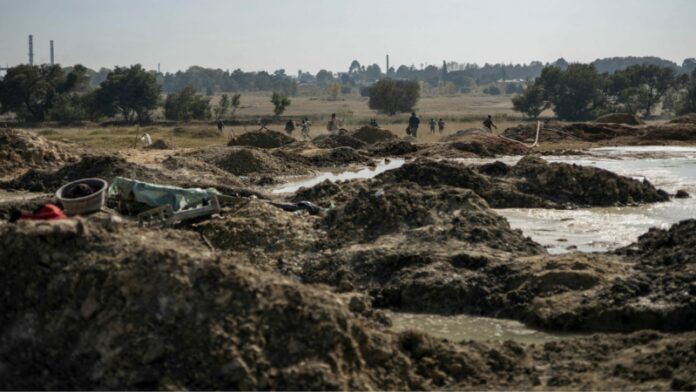
THE Department of Mineral Resources and Energy (DMRE) should stand much firmer on the “use it or lose it” principle where mining rights are concerned, as unused mining rights can create opportunities for illegal mining in South Africa.
This was one of the recommendations contained in a report on illegal mining that was presented at a joint parliamentary committee meeting on Friday. Members of parliament serving in the portfolio committees for mining, police and home affairs undertook site visits to five provinces in South Africa in September this year to investigate the prevalence of illegal mining in South Africa.
The visits were sparked by an incident in July this year when an armed robbery and sexual assaults had taken place in West Villages, Krugersdorp in Gauteng. The perpetrators were allegedly foreign nationals who worked as illegal miners.
In the report following the site visits, it was found that unrehabilitated, derelict and ownerless mines and also mines under care and maintenance are “pull factors” for illegal mining. “The Committees were concerned that the DMRE has not been firm on the ‘use it or lose it’ principle provided for in the MPRDA. A lot of people are sitting on mining rights that are not used,” said the report.
According to the Minerals and Petroleum Resources Development Act (MPRDA), a mining right could be revoked if a mine is not in operation unless there are sound reasons. Mines are under care and maintenance refer to the temporary halting in production for technical, environmental, financial or labour-related reasons.
In Limpopo province, 20 of the mines were under care and maintenance, which illegal miners see as an opportunity to operate under the radar, committee members were told. A case in point was Eersteling Gold Mine in the province where production had been suspended as far back as 1977 due to a “low gold price” at the time. According to the report, communities in the surrounding Bergnek Village in the Capricorn District alleged the non-operation of the mine caused it to have fallen victim to illegal mining.
In the report, it was recommended that existing legislation in the country be either amended or better enforced. “Existing legislation to combat illegal mining is fragmented and lacks substantive measures to effectively deal with these activities.”
One of the serious legal gaps, according to the report, is the fact that the MPRDA does not criminalise the prohibition of mining without compliance with certain conditions.
Previously, section 5(4) of the Act, read with section 98 (the penalty clause), criminalised mining, exploration and production of any mineral or petroleum, subject to certain requirements. However, section 5(4) was repealed in 2008 and replaced by a new provision that only prohibits such activities.
“Unfortunately, the prohibition has not been criminalised in the amended section of the Act. As a result, illicit mining is currently not criminalized.”
According to the report, this creates a legal lacuna which is a serious shortcoming that limits policing of illegal mining activities.
In the report, it was also recommended that the Department of Home Affairs should strengthen its immigration services in order to take stronger action against undocumented illegal miners.











